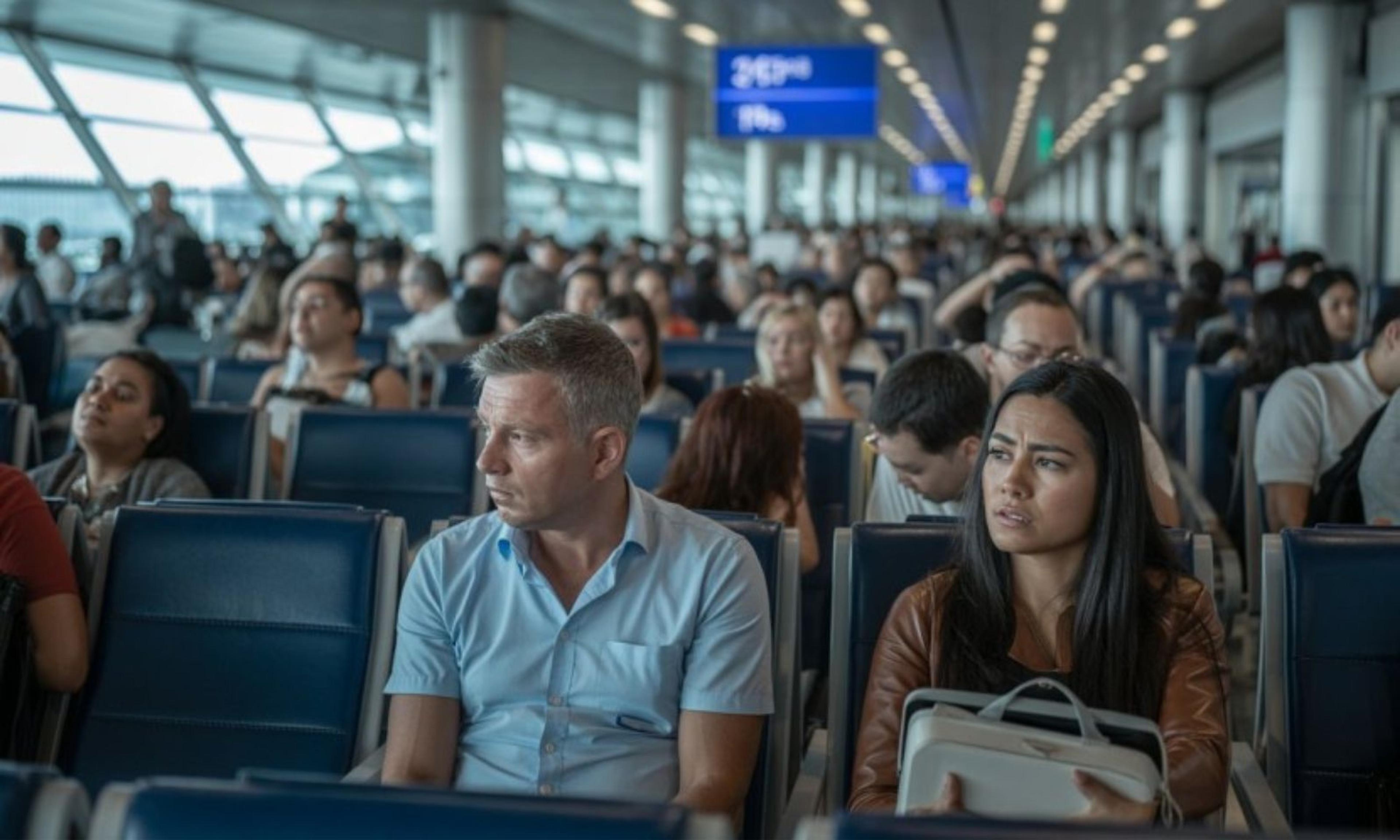

Cook Islands Prime Minister Mark Brown openly supports seabed mining.
Photo/supplied
Cook Islands seabed mining consultation criticised
Environmental advocates argue that the government has misled the diaspora, turning a blind eye to urgent warnings about the potential dangers facing the ecosystem.
The recent consultation process on seabed mining in the Cook Islands has been intensely scrutinised, with many raising concerns about its effectiveness and inclusivity.
Non-government organisations (NGOs), particularly environmental groups, have expressed frustration over the government's discussions across Aotearoa, New Zealand.
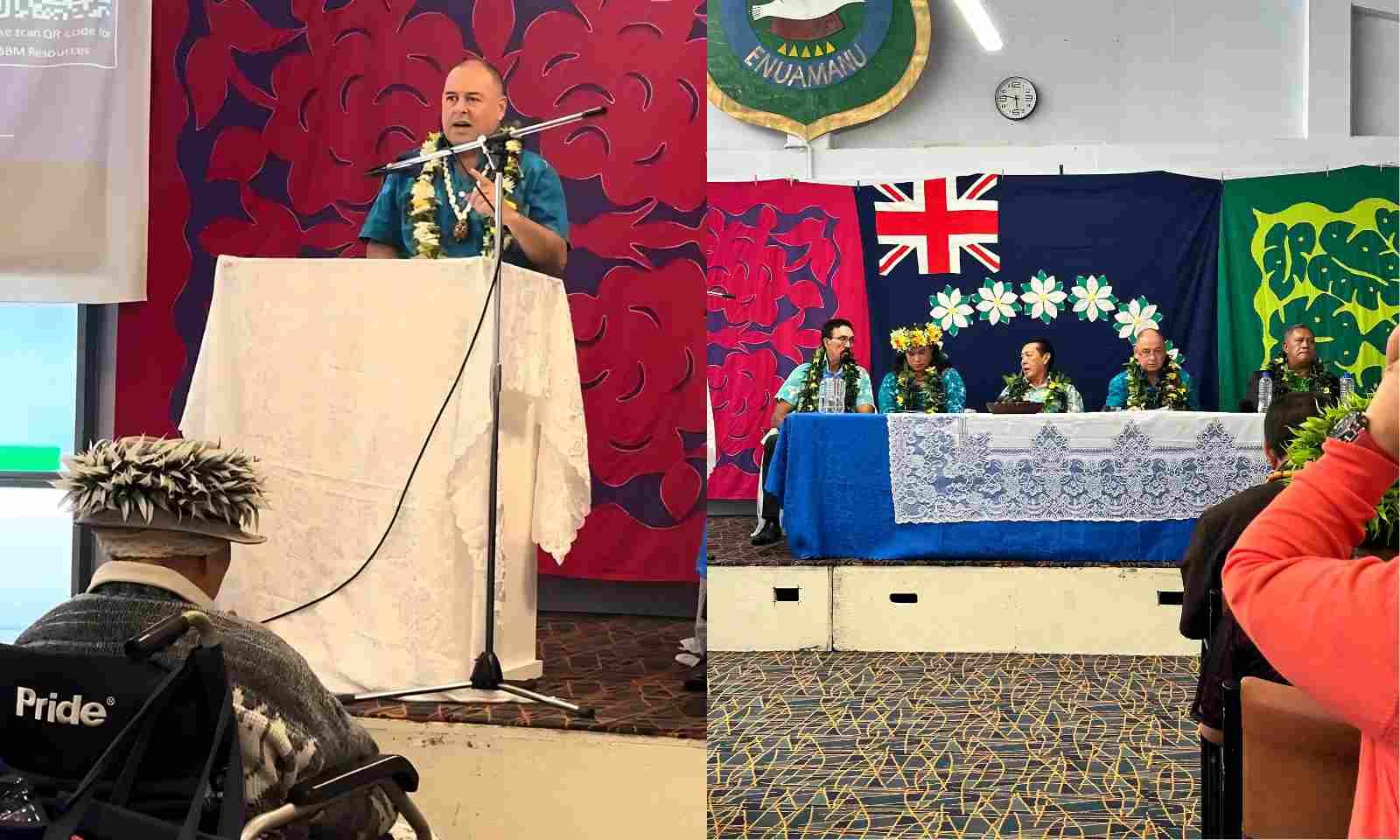
Cook Islands Prime Minister Mark Brown addresses those gathered at the Enuamanu Hall in South Auckland. Photo/Susnation Seta
Prime Minister Mark Brown, along with prominent cultural and spiritual leaders, engaged with the diaspora in Tāmaki Makaurau Auckland, Te Whanganui a Tara Wellington, Ōtautahi Christchurch, Ōtepoti Dunedin, and Tokoroa in the South Waikato District.
During the weeklong consultations, they discussed deepsea mining around their island homes, which ended last Friday.
The seabed of the Cook Islands is rich in polymetallic nodules that mining companies are eager to access.
While Brown’s government supports seabed mining, citing economic benefits, public concern is growing over the potential harms of large-scale mining operations.
Many argue that the Pacific island nation should benefit from the wealth generated by these mining activities.
Brown highlighted that the Cook Islands gained valuable knowledge after exploring the ocean floor for two years.
He emphasised the government's commitment to sustainable progress while allowing mining companies to reassess environmental risks during a three-year exploration phase.
These companies must evaluate the environmental risks associated with their operations. The government will grant them a licence if they demonstrate that mining is feasible.
Deepsea mining involves extracting potato-sized rocks, or nodules, from depths of kilometres beneath the ocean's surface.
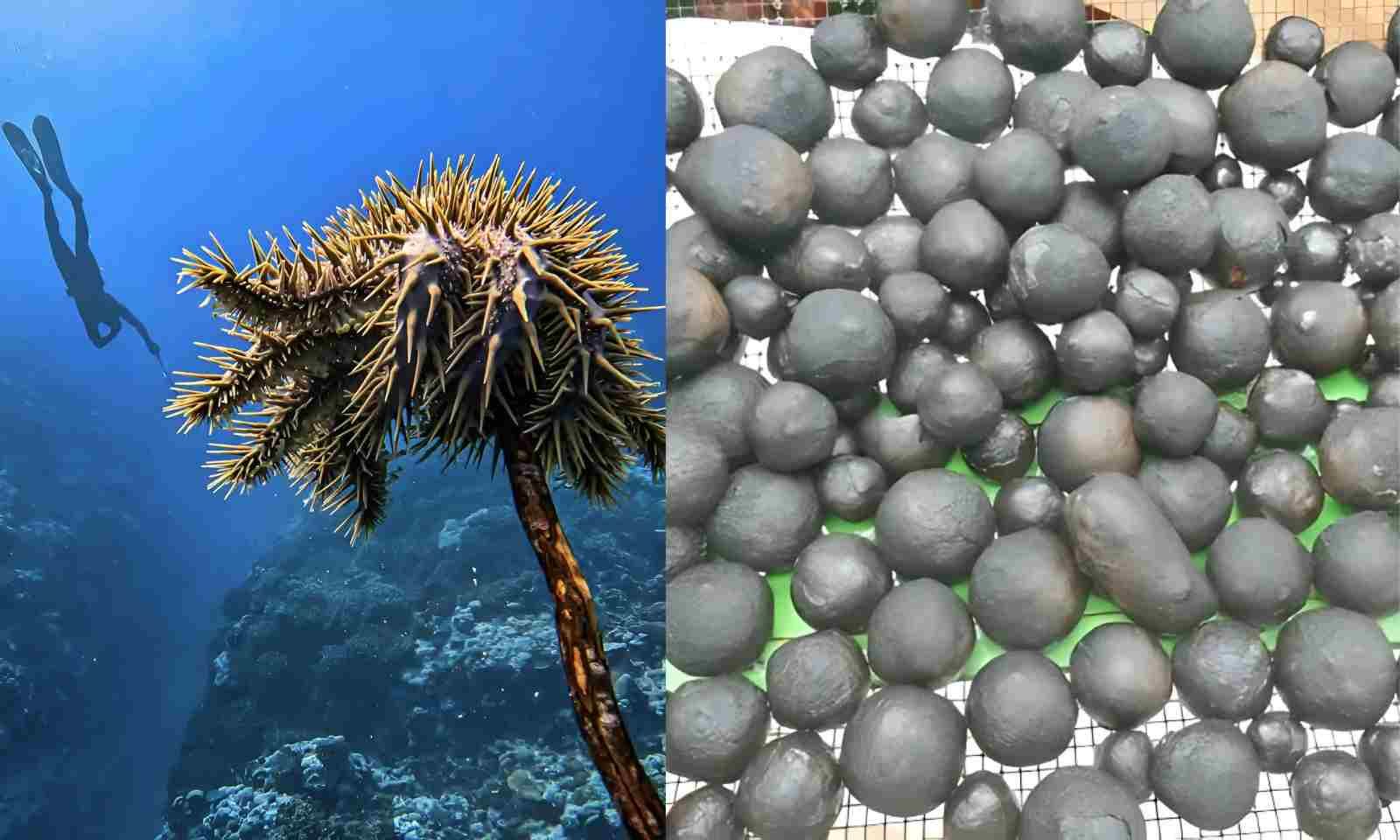
The seabed of the Cook Islands holds significant deposits of polymetallic nodules that mining companies eagerly want to access. Photos/Our Ocean Ancestors
These nodules contain precious metals such as nickel and cobalt, which companies argue are vital for transitioning to green energy in an increasingly electric-powered world.
Brown says the New Zealand Diaspora Consultation 2024 reflects the government’s commitment to strengthening its relationship with Cook Islanders abroad.
“This is an invaluable opportunity for connection and dialogue with Cook Islanders in New Zealand, who play a crucial role in our shared vision for the Cook Islands."
As the country approaches its 60th anniversary of self-governance, Brown reaffirmed the Cook Islands' commitment to sustainable progress, environmental stewardship, and strengthening community bonds.
Kaumaiti Tou Ariki, president of the House of Ariki, and Bishop Tutai Pere, chair of the Cook Islands Seabed Minerals Advisory Committee, support seabed mining. Pere says the nodules are a "gift from God" for human use.
However, not everyone agrees with the bishop or the prime minister. NGOs have described the consultation as “a roadshow" rather than a meaningful dialogue, proposing a 10-year moratorium for independent research.
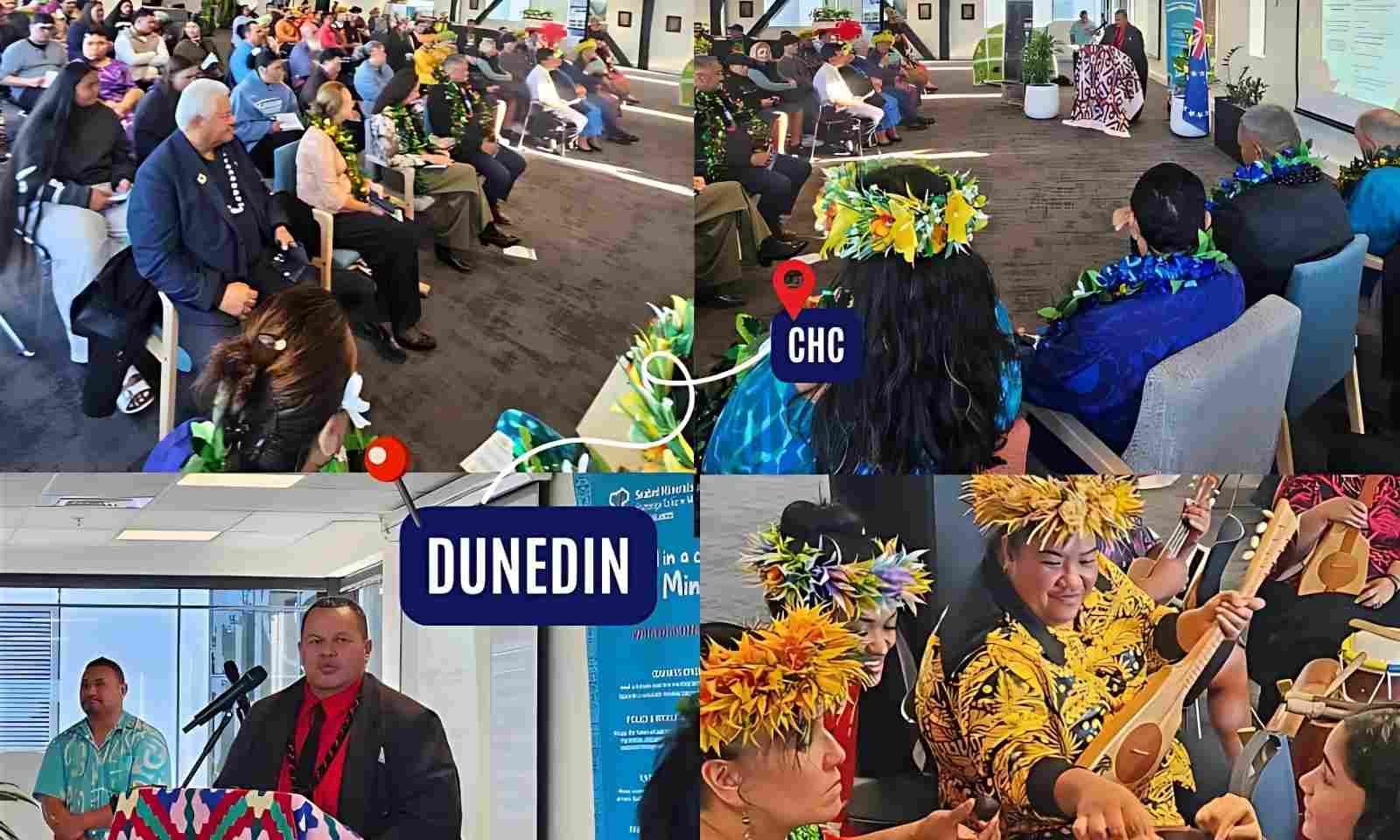
Photo/Cook Islands Seabed Minerals Authority
A recent public survey shows that most locals oppose deepsea mining.
NGOs claim that the government has misled older generations, mātua, about the financial benefits of deepsea mining, even as they seek economic security for future generations.
Civil society groups are uniting islands, generations, and experts to resist the emerging deepsea mining industry in the Pacific.
Organisations like Te Ipukarea Society (Cook Islands), Civil Society Forum of Tonga, Tetiaroa Society (Tahiti), Alliance of Solwara Warriors (Papua New Guinea), and region-wide networks like the Pacific Network on Globalisation and Pacific Island Climate Action Network have long campaigned against mining in the deep sea, hoping to stop the industry before it takes root.
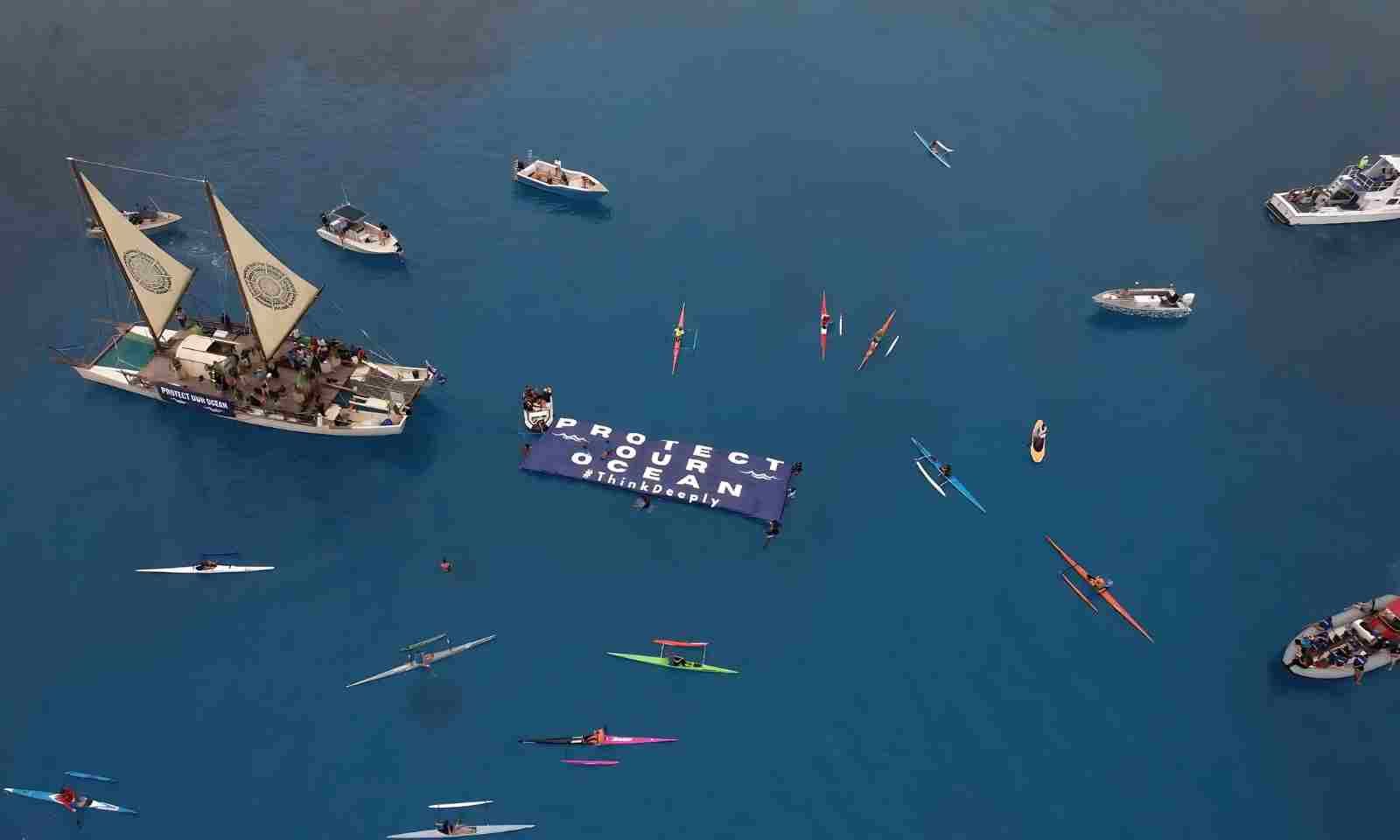
Photo/Greenpeace
Greenpeace Aotearoa and Te Ipukarea have voiced strong opposition, emphasising the need to protect the Pacific Ocean's pristine environments from corporate exploitation.
Greenpeace says Pacific civil society plays a vital role in the fight against deepsea mining, highlighting the importance of Pacific custodianship for marine health.
“Consider the Pacific Ocean's importance. It covers a third of the world’s surface area, is more significant in surface area than Mars, and only 13.8 per cent of it has been mapped.
“Advocating for protection against corporate greed seeking to deplete the deep sea’s finite resources is a monumental task.”
Te Ipukarea criticised the Brown government-led consultations in Aotearoa as “one-sided” and “misleading”.
TIS president June Hosking says the government’s presentation in Auckland featured their logo alongside that of Kōrero O Te `Ōrau, another environmental organisation, wrongly implying that both groups support seabed mining.
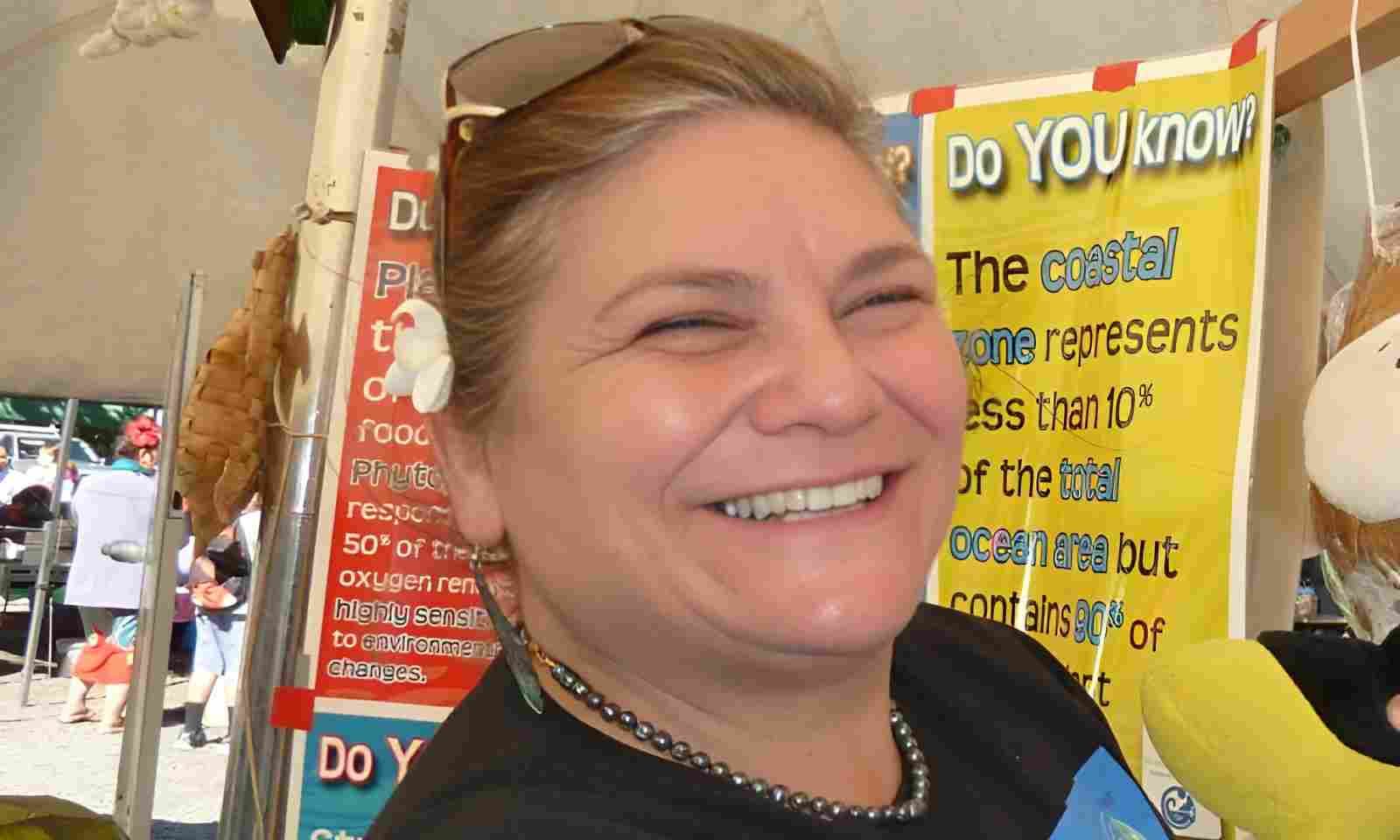
June Hosking criticised the government-led consultations in Aotearoa as “one-sided” and “misleading”. Photo/supplied
"We did not consent to the use of our logos and are horrified at this false implication that we are on board with the seabed mining sector," Hosking wrote in a letter published in the Cook Islands News.
"This is a serious misrepresentation to our Cook Islands people."
The government also faced criticism for poorly managing the consultation's question-and-answer sessions.
Young Cook Islanders in the audience reportedly raised their hands to speak but were overlooked in favour of government supporters.
Hosking says despite claims that no decision has been made regarding deepsea mining in the Cook Islands, the government's recent actions suggest otherwise.
She pointed to the passing of regulations covering mining operations.
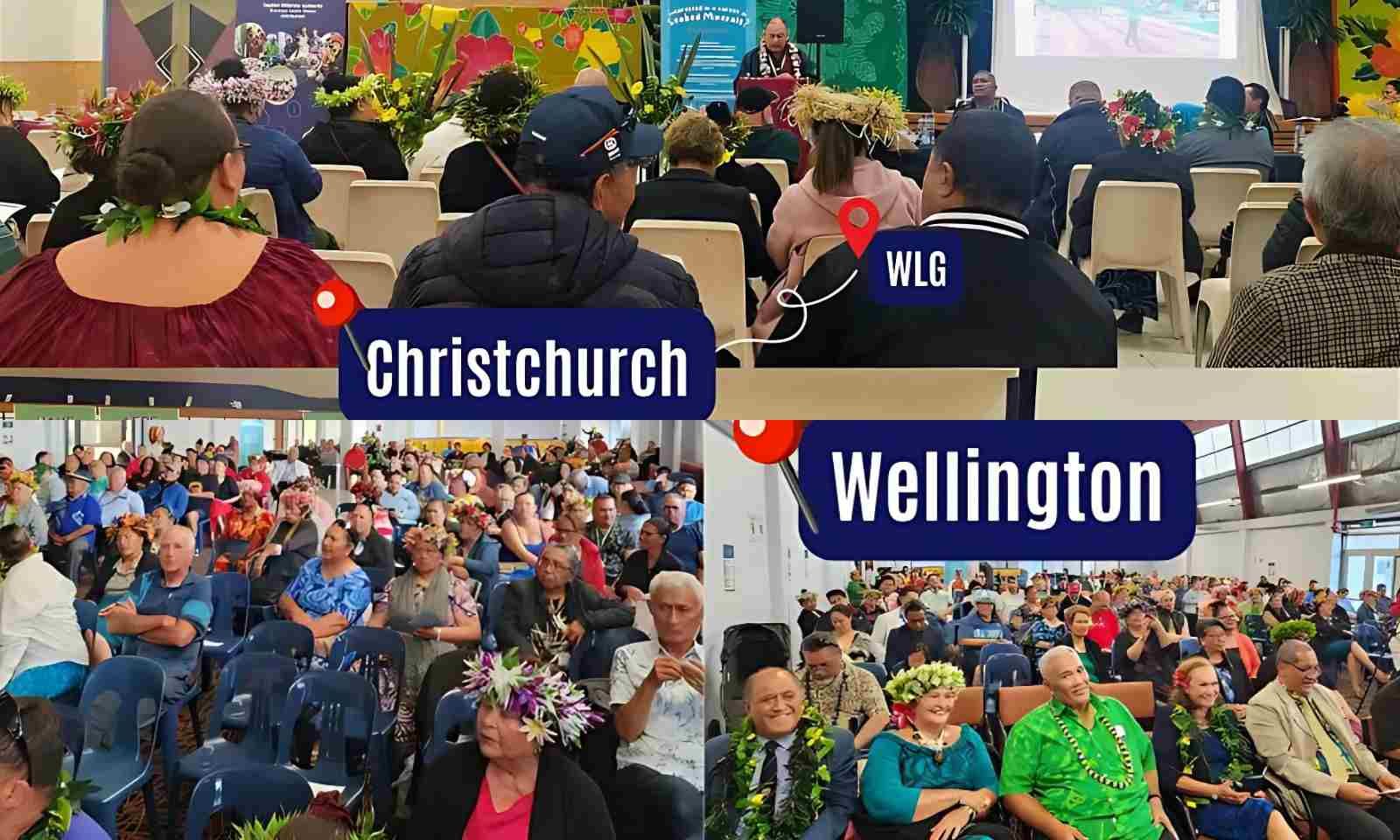
Photo/Cook Islands Seabed Minerals Authority
She says this raises concerns about the legitimacy of the government's claims regarding community engagement.
"The recent passing of regulations to cover the mining operation over two years before the exploration phase is even completed indicates their minds are already made up.
"Government supporters in the audience jumped the queue to voice their support for seabed mining.
"The domination of the limited time available by these individuals was so unfair to the young Cook Islanders waiting patiently for a chance to talk."
The consultations were organised by the Cook Islands Seabed Minerals Authority (SBMA), the Office of the Prime Minister, and the Cook Islands New Zealand High Commission.
The discussions also included the country’s 60th anniversary of self-governance in 2025.
Watch the entire consultation session in Auckland.

